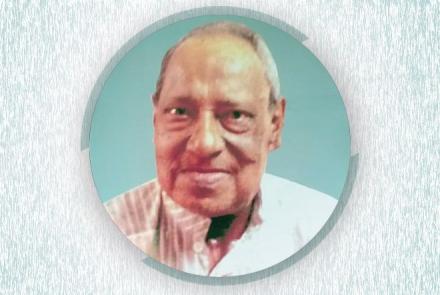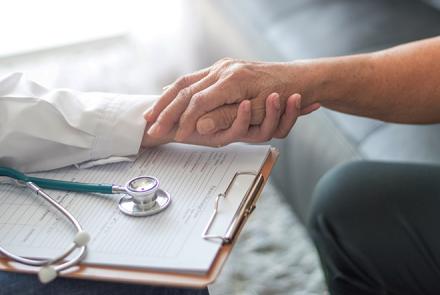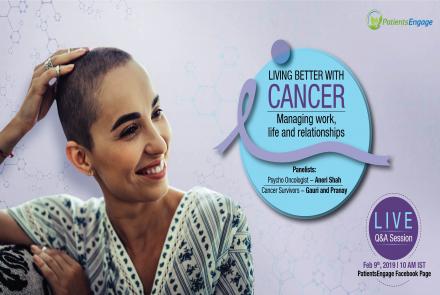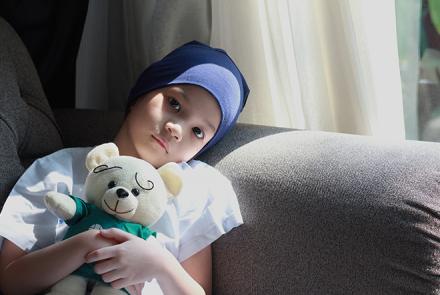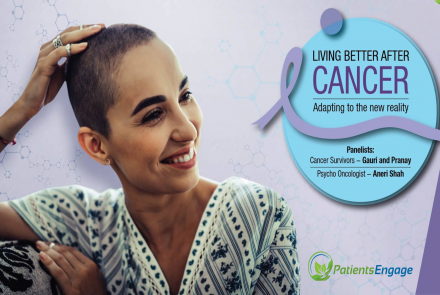
An informed and engaged cancer patient has better clinical outcomes and fewer side effects. Knowing the trajectory of the illness also helps the patient and their family plan for the treatment and other care related aspects. Dr. Shital Raval shares an exhaustive set of questions that you may need to ask your cancer specialist.
A Cancer diagnosis can be quite alarming but by taking an active role in planning treatment and care, it can help alleviate the unwelcome stress and anxiety. According to the American Society of Clinical Oncologists (ASCO), clinical studies show that people who become well-informed about their disease usually have better results with their treatment course and suffer fewer side-effects.
PatientTip:
Write down questions on a piece of paper before seeing your Consultant. This can greatly reduce apprehension and maximize your appointment time. If the patient feels too overwhelmed to deal with the detailed information, a relative or close friend should take on the task of being the informed caregiver.
Here are some recommended questions that you can ask your Oncologist or Health Care team during consults. Remember that the list below is fairly comprehensive and are questions that can be asked through the course of treatment and not in a single appointment.
General Questions:
- What kind of cancer do I have? Where is it?
It is essential to know the exact name of your cancer, which usually includes the location of the tumour as well. For example, liver cancer, breast cancer etc. Some cancers don’t follow the same naming rule such as Ewing’s sarcoma, or Hodgkin’s. In broader named cancers like Oral or Intestinal cancer, find out the exact loci and origin of the tumour.
- Why me?
Finding out why the cancer occurred or what specifically caused the cancer often consumes patients with the “why me” question. Your doctor may list the common causative factors for your cancer but it may in some cases not provide any definite answers. For example, we have seen that non-smokers can often get Lung cancers.
- What stage is it?
Staging refers to the scale of cancer in the body and where all it may have spread to. There are 4 stages of cancers with Stage 0 meaning the cancer is in place and Stage 4 being the metastatic or advanced stage meaning the cancer has spread to other organs or parts of the body.
- What does grading mean?
Grading tells us how different the cancer cell is from a normal cell when seen under a microscope. This helps predict how fast the tumour may spread and prognosis for the patient.
- Is my cancer genetic? Is my family at risk?
Cancer in itself is a genetic disease because it occurs when a normal cell mutates to an abnormal or malignant cell. Certain cancers have a familial trait, which means they get passed down from one generation to the next. These include breast, colon, ovarian, prostate etc. If you have a hereditary type of cancer, your doctor will suggest genetic testing for you and your family members.
- What tests do I need to do? What will the tests tell you?
Your doctor will choose diagnostic tests after considering the patient’s symptoms, possible type and location of the cancer, age, other medical conditions etc. Asking the doctor what each test means and why it is required will ease a lot of doubts.
- What happens next?
This is a relevant question that will give you an approximate time frame of what needs to be done next. So it would usually be diagnostic tests, waiting for results, meeting the doctor again, maybe more tests, onset of treatment, recovery period, and so on.
Treatment related questions:
Your primary doctor may change through your course of treatment. You may be under the care of your Surgeon, Chemotherapist or Radiation Oncologist depending on your route of treatment. The questions below can be addressed to all of your attending doctors.
- Is it treatable?
This is a frightening but important question to ask especially for people with advanced stage cancers. Cancer is more successfully treated if detected early. Remember that cancer may not be curable but is treatable.
- What are my treatment options? What do you recommend?
Besides the 3 known treatments of surgery, chemo and radiation therapy, there are now several neo-therapies available such as targeted therapy, immunotherapy, stem cell treatments etc. Speak to your doctor about what your best options are. Treatment is usually based on age, stage of cancer, other existing medical conditions and known research studies.
- How much will it cost?
Expenses and affordability are both factors that may affect your treatment choice, so asking about this will help you be prepared. You can also then check with your medical insurance provider what you will be covered for and what you will need to procure on your own. Speak to the hospital social worker about government schemes and your employer about workplace health compensations.
If finances are not an issue, let your doctor know so more options if available are discussed. You may be able to afford private hospitals, pricier drugs or travel abroad for treatment.
- What side-effects should I look out for?
As with any drug, side-effects are unavoidable but they vary from person to person. However, if made aware of them, you can mitigate them and also know when to alert your doctor. Ask your doctor about a written list of side-effects and how to manage them. Most hospitals now provide written booklets for treatment/side-effect care and when to alert your doctor.
- What should I be eating?
All patients are provided with recommended food/diet plan by the hospital dietician during the course of cancer. Patients are put on a high protein diet to balance the weight loss and muscle wasting while aiding the body’s immunity. Patients with oral or digestive track cancers will be on liquid diets. Patients with feeding tubes are provided a timely diet chart for strict fluid nourishment.
- What are clinical trials?
Clinical trials are research studies that test new drugs before they are approved for sale. Such trials are treatment options for patients who qualify for the research criteria.
- Are there any clinical trials available for me? How do I find out more?
To find out about any eligible clinical trials, your oncologist may help guide you towards ongoing trials or you can do your own search online. Cancer hospitals that conduct research are likely to have ongoing clinical trial capacities.
- How long will the treatment take?
Depending on what treatment plan you are prescribed, the entire duration may vary anywhere from 3 to 9 months. Approximate time duration of the treatment is useful information if you need to take time off from work and schedule your next few months. In cases of relapse, treatment will have to be restarted.
- How will it affect my daily life? Can I continue to work?
Cancer can have a huge impact on your quality of life and emotional health. Mental distress, depression, anxiety, loss of confidence, fear etc. are some common reactions seen in cancer patients and their families. Many people are able to resume employment after the course of treatment is completed. Additional time off may be required if there continue to be health complications or issues such as weakness, fatigue, anemia etc.
- Will treatment affect my fertility/chances of having children?
Cancer treatment can affect fertility in both males and females regardless of site of cancer. If you are young and have not yet had children, your doctor will counsel you about fertility and preservation of eggs or sperm before treatment commences, especially if you have cancer of the reproductive organ.
- What is my prognosis?
Prognosis means your outlook or chances of recovery after treatment. It typically depends on the type and stage of cancer, your age etc. With cancer, doctors will give you a 5 year survival rate based on research for that particular cancer. Please remember that the word “cure” is not used for cancer. If all tests and scans show that your cancer has gone, it means you are in remission. If the cancer returns, it is termed reoccurrence or relapse.
- How can I contact you for more questions or concerns?
Ask your doctor specifically for contact number and/or email of his, his team and/or department that can be contacted both during and after-hours.
- What support services are available for me and my family?
Hospitals now have several support services for patients such as counseling, food and emotional management, physiotherapy, prosthesis, medical claims department etc. NGOs and local organization may be associated with your hospital for more miscellaneous aid and support.
- Where can I get more information?
Ask your doctor who you can contact or credited websites that can provide further information regarding the type of cancer you have.
Questions during Follow-Up visits:
- When do I have to come back for follow-up? How often and for how long?
Post all treatment, follow-up care is done regularly for at least 5 years. They may be more frequently soon after treatment and then more spaced out after that. Follow-up visits are important because they not only tend to the after effects of cancer treatment but also for prevention and detection of cancer relapse.
- Do I have to get any tests done before the follow-up?
Your doctor or his team will inform you what needs to be done before your next follow-up appointment. Follow-up may include a check-up, physical examination, blood test and any imaging scans.
- What is the chance my cancer will return?
The return of cancer after treatment is called recurrence. Recurrence is unpredictable but more likely to come back in the first 5 years after treatment. It is different for each patient and risk of recurrence depends on type and stage of cancer.
- What recurrence symptoms/signs should I be looking out for?
You should watch out for any unusual changes in the body such as a lump, unhealing sore, chronic hoarseness, change in urinary or bowel movements, abnormal bleeding, unexpected weight loss etc. Get any changes checked out right away by your local GP, don’t wait for your next follow-up.
PatientTip Recap:
- Write down questions on a piece of paper before seeing your Consultant. This can greatly reduce apprehension and maximize your appointment time.
- If the patient feels too overwhelmed to deal with the detailed information, a relative or close friend should take on the task of being the informed caregiver.
- Don't ask all these questions in one appointment. Ask them over the course of the treatment
- Read about your cancer on PatientsEngage
- Discuss concerns or ask questions in the Cancer Community
If there are questions or issues that you think should be added in this checklist, please leave a comment or email us at editor@patientsengage.com



